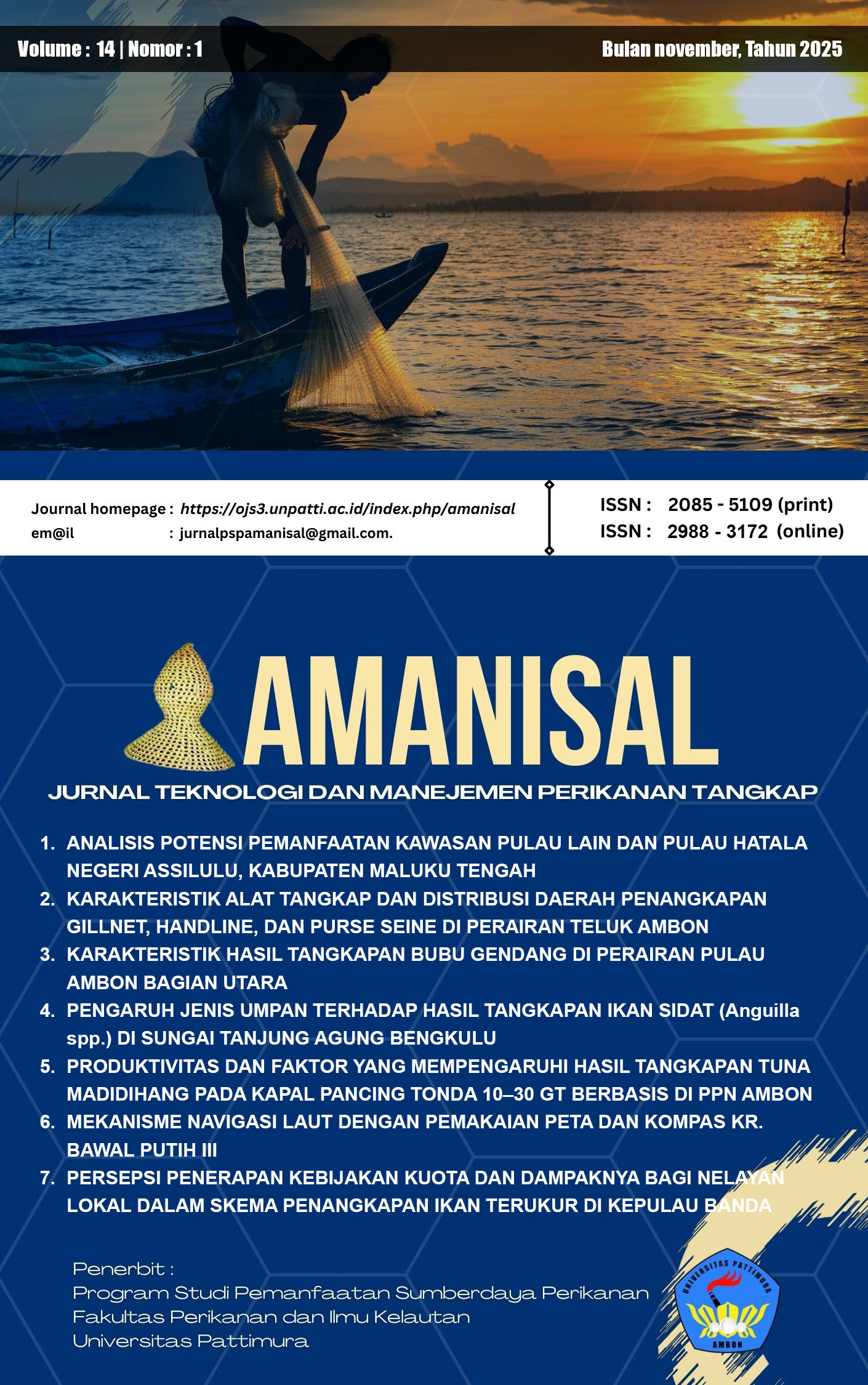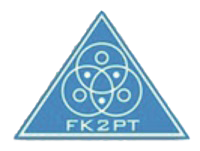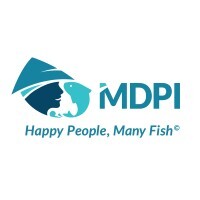MEKANISME NAVIGASI LAUT DENGAN PEMAKAIAN PETA DAN KOMPAS KR. BAWAL PUTIH III
Abstract
Despite the rapid advancement of digital technology and the widespread adoption of modern electronic navigation systems, conventional navigation method, such as the use of maps and compasses, continue to play a significant role, especially in emergency situations or when electronic systems become unreliable due to signal disruptions. This study aims to evaluate the effectiveness of maps and compasses as navigation method during emergency or shortage condition in the research vessel KR. Bawal Putih III, including accurate determination of the ship’s position and route. Also, this study investigates various factors influencing the effectiveness of this conventional method. The study was conducted from April 17 to June 1, 2024, at the Fisheries Training and Extension Center (BPPP) in Ambon, Maluku. A descriptive approach was employed, with primary data collected through direct observation, interviews, and field measurements, complemented by secondary data from literature and technical documents. The findings revealed that the use of maps and compasses remains effective, particularly for archipelagic regions navigation with complex currents and challenging terrain. KR. Bawal Putih III, equipped with a magnetic compass, nautical charts scaled 1:50,000, and other navigational aids, has proven its capability to effeiciently accomplish training and research vessel function. Possitioning accuracy using maps and compasses highly depends on the crew's interpretation and accurate calculation skills. The novelty of this research lies in its practical evaluation of conventional navigation systems on a modern training vessel, offering a reliable alternative when electronic systems are limited. Thus, the study reinforces the importance of preserving and strengthening conventional navigation skills as a fundamental competency for seafarers, which remains highly relevant in the digital age.
Downloads
Copyright (c) 2025 Machmud A. I. Leisubun, Friesland Tuapetel, Gerson Behuku

This work is licensed under a Creative Commons Attribution-ShareAlike 4.0 International License.






